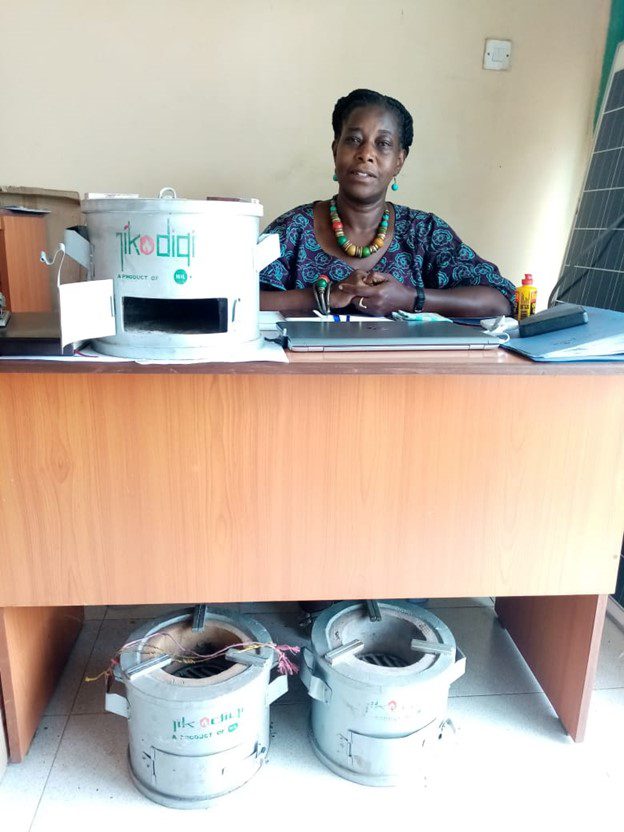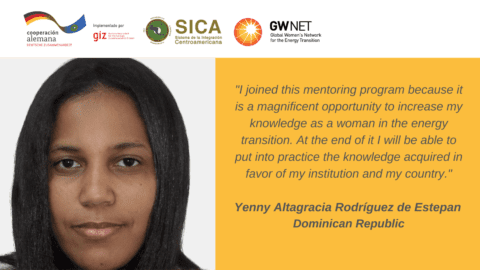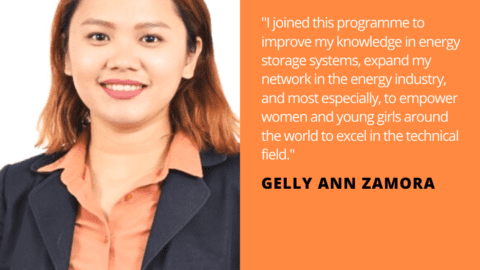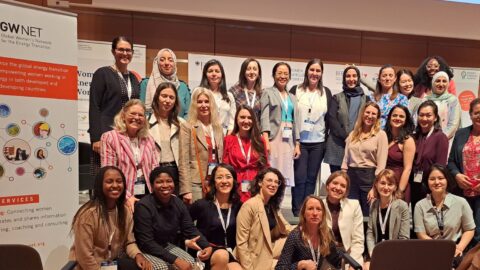GWNET brings you the 1st instalment of the “Meet the Women in Clean Cooking” series which celebrates the work and achievements of the women who are part of the Clean Cooking Mentorship Program. This program is made up of 30 mentee-mentor tandems, with mentees from over 15 countries. Meet Clean Cooking mentee, Awuor Dorothy Otieno, founder of Nyalore Impact in Kenya.
1) Tell us a little about yourself. What do you love most about what you do?
I am a devoted femmepreneur, a community member and a passionate crusader for clean energy, always looking forward to articulating women issues to close the energy gap and pursuing my ideas and dreams of empowering rural women.
2) What were your goals when you started working in clean cooking? How have these evolved?
I dream to be among the top social change agents, successful clean energy entrepreneurs and the proverbial tipping point for women’s equality in the clean cooking sector in rural communities in Kenya and beyond. However, to date this is a journey still on course, my dreams are still very valid, alive and I believe this program is a step to achieve them.
3) What are the opportunities for clean cooking in your country?
93.2% (6.2 million) households in Kenya with only one cooking option rely solely on charcoal and firewood (MoE & CCAK Cooking Sector study 2019). World Health Organization reports that 36 million Kenyans experience poor health due to household air pollution from the use of biomass and traditional cookstoves. The majority of these are people in rural Kenya due to their over-dependence on biomass and the traditional three-stone cookstove.

4) What challenges have you faced in the sector? Can you tell us how you overcame (or are overcoming) this challenge(s)?
I face various challenges from common entrepreneurial, like every other businessperson to gender-related.
Through all these, I am driven by the conviction that for traditional cooking behaviours to end, there needs to be a positive transformation in the way that women are valued, and in the beliefs and social norms that underpin domestic work. I am confident that championing clean energy issues – which has the power to positively influence the very fabric of society and communities – lies at the heart of this transformation.
Community involvement provides a positive alternative, opens debate and discussion in the public sphere, prompts individuals to question their acceptance of the modern clean cooking solutions, and increasingly builds confidence to speak out against household health deterioration and environmental degradation. This is role modelling rural clean cooking champions, which is seriously lacking in this part of the world.
5) Where would you like to be in 5 years and how can this mentorship program support this long-term goal?
I would like to be among the top rural role models to who women can relate and look up to for encouragement and say “Yes we Can”. Additionally, I would like to transform communities’ perception and gender norms for gender equity and a new world where women and girls have the opportunity for quality lives.
I look forward to focusing more on local women entrepreneurs particularly those serving the underserved in the most difficult to reach rural areas, in terms of skills and knowledge development and financial support since the challenges are even more in these places. This rural population (6.2 million) is at the highest risk of remaining behind as others in the urban and peri-urban areas bridge the energy poverty gap.
6) What advice would you give to women hoping to join the clean cooking sector?
It will take one passionate and resilient woman to empower other women in the clean cooking sector, just like a single candle can light thousands of candles without losing its energy, so long as we share the same beliefs and understanding of our own cooking challenges in developing countries.
Read more about GWNET’s mentoring programmes here.











